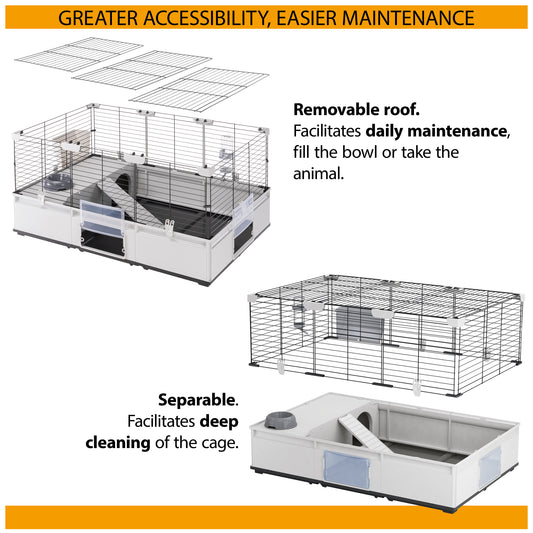April is National Pet Month during which our nation’s love of all pets is celebrated and awareness is raised about what it means to be a responsible pet owner. Giving a home to a dog – whether it’s a puppy from a breeder or a rescue from a shelter – is a big decision, and part of being a responsible owner is ensuring you get it right. Do your research ahead of time and make sure you adequately prepare yourself for life as a dog owner.
How to be a responsible dog owner
Being a responsible owner means making sure that all your pet’s physical and emotional needs are met, as well as protecting them from harm. Here are some things that every dog owner should consider.
Feeding
A dog owner needs to provide their pet with a nutritious and well-balanced diet. The best way to do this is with a complete dog food that is designed to give a dog everything it needs for optimal health. Unless you are confident in being able to fulfil your dog’s complex nutritional requirements, it is best to stick to shop-bought dog food rather than making your own.
Exercise
Daily walks are not just about physical exercise for a dog. With all the smells of the neighbourhood and the other dogs and people they might meet, walks offer vital mental and social stimulation too. The amount of exercise your individual dog needs will depend on their breed, age and health, so check with your vet that you are giving your dog enough exercise.
Company
Dogs are pack animals and at home their family is their pack. Dogs are not designed for solo living, which is why many owners find that their dogs can be destructive or overly vocal when they are left at home alone.
Dogs should not be left alone for long periods of time. When they are young, they need to be taught how to be happy for short periods of time on their own. Separation anxiety is a common thing for dogs to suffer from if they are not introduced to "alone time" from a young age.
If you do need to leave your dog for short periods, give them something to keep them busy and happy like a puzzle feeder or stuffed Kong toy. If you need to leave your dog on a regular basis, ask a trusted friend to visit them in your absence or find a local dog walker.
Identification
It is a legal requirement for all dogs to be microchipped and owners face a fine of up to £500 if they do not comply. Microchipping is a form of permanent identification in which a tiny chip is painlessly injected under the skin of an animal. When an electronic reader is passed over the chip an identification number unique to that animal is picked up which can then be cross-referenced on a database that holds the owner’s details. Microchipping enables lost or stolen pets to be returned to their rightful owners and provides a way to correctly identify dogs that have been found injured or deceased.
UK law states that a dog must also wear a collar with ID tag when out in public. The tag must have the owner’s name and address on it but a telephone number is also helpful. If your dog is found without a collar and tag it is possible they could be seized and treated as a stray.
Protect against disease
A dog owner needs to protect their pet from common diseases by ensuring their vaccinations are up to date and that they are regularly treated for fleas, ticks and worms. Annual check-ups with a vet will mean that any health issues can be dealt with promptly.
Neutering
If you do not intend to breed from your dog it is important that you consider having them neutered. This involves castration in males and the removal of the ovaries and uterus (spaying) in females.
Neutering is a very important part of being a responsible dog owner due to the high numbers of unwanted puppies ending up in rescue centres.
Training
A dog owner needs to teach their pet basic manners so that they become a good canine citizen rather than a menace to society. Dogs should not be let off lead in a public space unless they can be reliably recalled and young dogs should be taught that it is not acceptable to jump up at anyone they might meet in the street. This can be done with the help of tasty treats and positive reinforcement.
Through early socialisation, an owner should expose their dog to as many of the objects, people and situations that they could encounter in later life so that they do not grow up to be fearful of new experiences. Dogs also need to be taught how to behave around other dogs and puppy training classes are a great place to start.
Insurance
A dog owner should ensure that they have the means to cover veterinary costs if their pet becomes sick or injured. The best way to guarantee peace of mind when it comes to unexpected vet bills is to take out a suitable pet insurance policy. Policies vary in terms of premiums and things covered, so it pays to shop around.
Find out more
You can follow all the action this month via the National Pet Month social media channels – Twitter and Facebook – or catch the latest on the website at nationalpetmonth.org.uk
If you enjoyed this article, have a look at:









